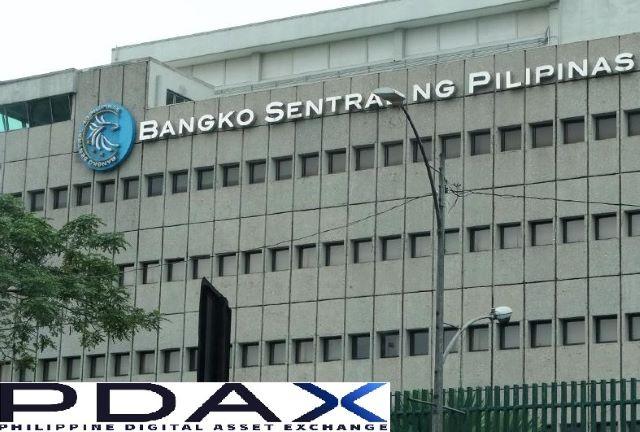PDAX, BSP back creation of crypto-fintech regulatory 'sandbox'

Cryptocurrency exchange operator Philippine Digital Asset Exchange (PDAX) and the Bangko Sentral ng Pilipinas are supporting the creation of a crypto-and-fintech regulatory "sandbox."
A crypto regulatory sandbox is a live-like testing environment used to ensure regulatory compliance and security checks for financial operations, including cryptocurrencies and blockchain-based systems, according to Investopedia.
In a statement, PDAX said that a crypto-and-fintech sandbox intends to spur innovation and technological advancement in this space.
It added that the move is also in response to the growing public interest in alternative investment platforms such as cryptocurrency, notably due to the clear shift from traditional to digital financial services.
In a recent virtual forum “The Philippine Financial Sector: Policy Perspectives and Trends,” held by the European Chamber of Commerce in the Philippines (ECCP) and the Fintech Philippines Association (FPA), PDAX founder and CEO Nichel Gaba said that “in a regulatory framework, a startup or an entity can test an idea rolling out a product to the market but within the parameters prescribed by a regulator.”
“This framework or sandbox environment ensures that innovative initiatives flourish, while ensuring consumer protection, data privacy and cybersecurity, and that all such technology readily complies with applicable laws and regulations. The private sector and regulator can create an ecosystem for these initiatives,” Gaba said.
PDAX's CEO also welcomed collaboration with the BSP in developing and launching initiatives that can increase public participation in the fintech and digital asset spaces while protecting their welfare.
“The BSP is one of the global leaders in this space, and we are honored to work with them into nurturing fintech advancements that can help our public make worthy investments, build their income and savings, and plan for a secure future,” Gaba said.
For his part, BSP Governor Benjamin Diokno acknowledged that nascent financial technologies and the legal framework that supports it have to be cultivated in order to support the Philippine economy which has remained resilient despite the pandemic, and is expected to experience 6.5% to 7.5% growth by the end of the year.
According to Diokno, the banking sector itself remains robust with its industry assets also expected to grow by 6.1% year on year.
“As a result of the pandemic, we have seen an increase in use of the fintech platforms. The crisis has rapidly reshaped not just the financial system but also the way we interact and how we do business,” the BSP chief said.
Diokno cited the recent surge in the volume of transactions of the two interbank fund transfer services that the government launched —Pesonet reaching P367 billion and Instapay climbing up to P177 billion by the end of 2020.
Likewise, BSP Deputy Governor Francisco Dakila Jr. said, moving forward, the central bank institution will be providing both liquidity support and digital transformation in order to empower the private sector and their customer market to conduct safe user-friendly transactions that can spur both individual and organizational economic growth.
Innovations like cryptocurrency, virtual bond trading, online fund transfer services, and soon artificial intelligence-powered financial advisors “will make financial transitions more popular to people. We are cooperating with the other government agencies to harmonize our regulations. This is our response to supporting digital innovations in the financial sector,” according to Dakila.
Gaba also emphasized the importance of the private sector’s cooperation with regulatory bodies especially as more and more digital services emerge and are adopted by the public.
“Our regulators have proactively fostered innovation. It's often taken for granted how serious it is to service customers in the financial services industry. Capital requirements must always be high. The consumer protection standards must always be upheld. It's incumbent on organizations like PDAX to step up to these requirements, whether in the form of sandbox or actual regulations,” he said. —LBG, GMA News




